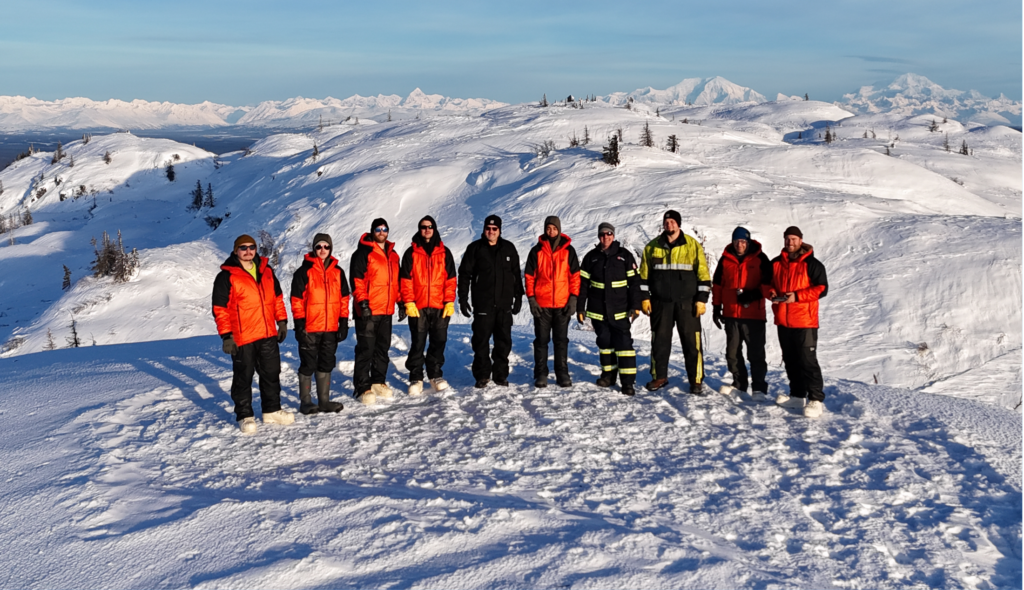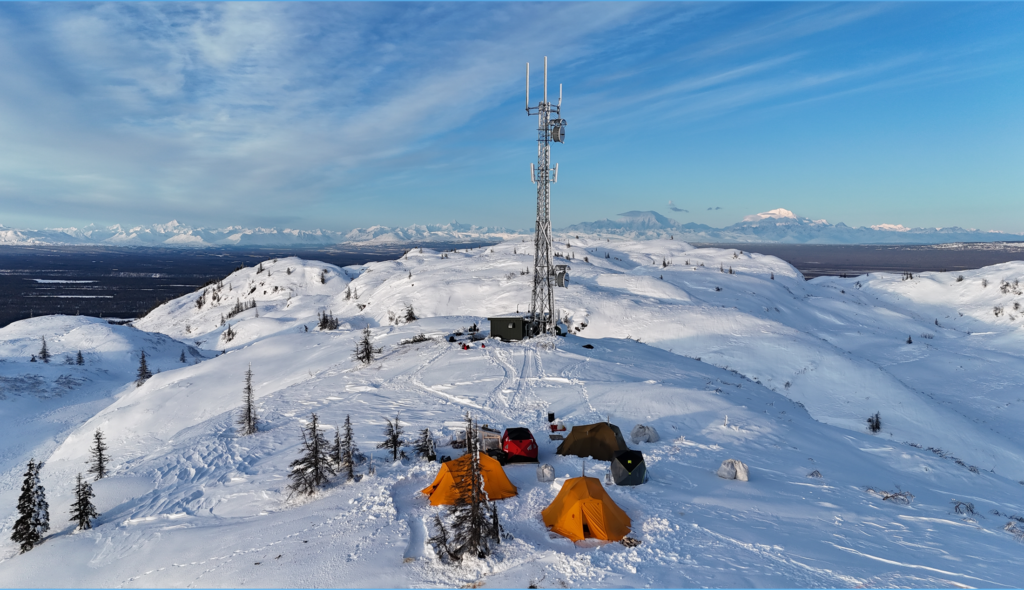Imagine working for 60 days in a remote location only accessible by helicopter and sleeping in a tent at night with temps averaging below zero and winds frequently above 30 mph. This is what our Emergency Response Team based in Anchorage did in January and February to complete the cleanup of a 500-gallon diesel spill at a remote cell tower site on Shell Hill, bordering Denali National Park. The 60-day project required helicopter-only access (one hour helicopter ride from the nearest road) and careful hand excavation under winter conditions to ensure proper containment and disposal.
Project Scope & Objectives
The team was tasked with hand excavating approximately 60 cubic yards of diesel-contaminated soil by hand, placing it into super sacks, and coordinating helicopter transport for disposal. Due to the site’s location, all employees, tools and materials had to be flown in, requiring precise planning and execution.
Challenges & Adaptation
The Emergency Response Team worked in temperatures frequently below zero, with wind speeds averaging 30 mph and limited visibility. The harsh weather impacted excavation efforts, slowed transport logistics, and required constant adjustments to maintain safety and efficiency. “The living and working conditions were constantly pushing the envelope of what was physically doable,” said Dillan H., Emergency Response Manager.
Successful Execution
Despite these challenges, the team remained focused and adaptable, completing the project on schedule. Their ability to work efficiently in difficult conditions ensured that environmental impacts were mitigated, and the site was properly remediated. “This project reflects the team’s expertise in remote site operations and their commitment to high safety and environmental standards,” said Dillan.
This project would not have been successful or even possible without the resilience and dedication of this team including Foremen Forrest L. and Paul S., and Technicians Brian J., Matt N., Andy C. and Trevor J.


